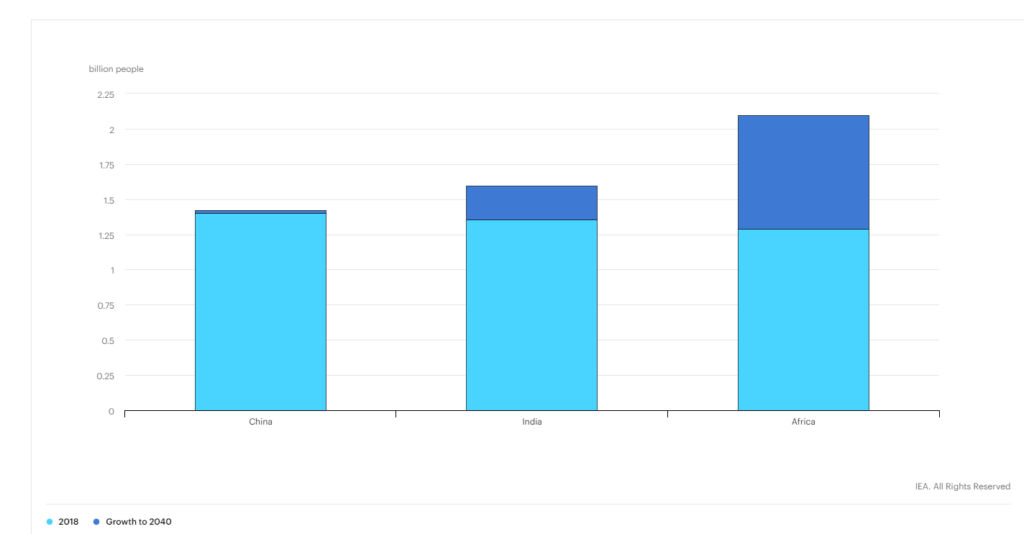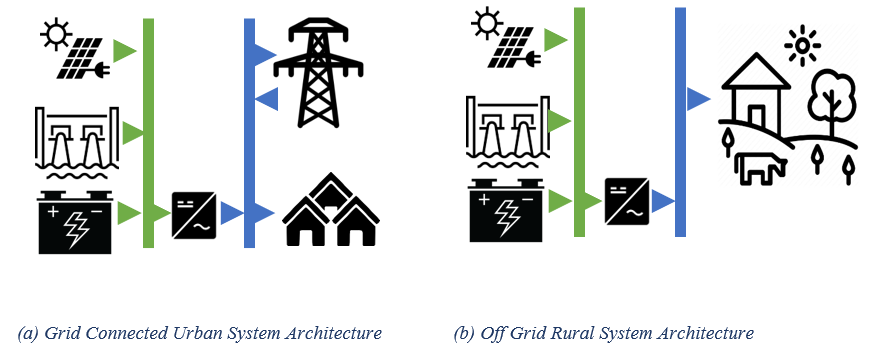Techno-economic Analysis of Energy Storage Integration for solar PV in Burkina Faso
Mr Hamza Abid is a Master Student with KTH, pursuing a Masters in Energy Innovation at the Department of Energy Technology. He participates in the joint Master Program ”Energy for Smart Cities” managed by InnoEnergy across four European universities. He has carried out his Masters Thesis with Renetech AB, developing an analysis of different options to integrate storage with PV power generation for West Africa. The following is a brief description of the project, authored by Mr Abid. We at Renetech are grateful for the support received from such a bright fellow.
The rise of Africa’s population and consumerism calls for an unprecedent increase in energy demands for the continent. As per IEA Africa Energy Outlook 2019, Africa’s population is among the fastest growing and youngest in the world. One-in-two people added to the world population between today and 2040 are set to be African, and the continent becomes the world’s most populous region by 2023, overtaking China and India.
One of the key challenges is to provide cheap and reliable access of sustainable energy to the growing African population. The way these energy needs are met is going to shape the continent’s future energy trends and much of global economy.

Total population by region, China, Africa, India, 2018 and growth to 2040
While the continent is becoming rapidly electrified, the challenge remains more dominant in some areas than others. Burkina Faso is one of the least electrified countries in the world, where only 9 % of the rural population has access to electricity. The Economic Community of West African States (ECOWAS) has set a target of 2030 to achieve 100% electrification in all member countries. To meet these targets with sustainable energy, the need for innovation is now more than ever imperative in the renewable landscape.
Considering the same, a techno-economic analysis of pumped hydro storage and electric batteries was performed by one of the master’s thesis candidate at Renetech AB and KTH. This study presents a hypothetical conceptualization of techno-economic feasibility of pumped hydro storage (PHS) and electric batteries with solar photovoltaics (PV) in the context of Burkina Faso. The results are explored for an off grid standalone PV plus storage system for a rural setting and a grid connected PV system for an urban setup. The least cost configurations for both the cases are determined using a software HOMER (Hybrid Optimization Model for Electric Renewables).

The results indicate the need of extended solar penetration in Burkina Faso in response to the challenges of low electrification rates in the country. Pumped hydro storage remains the least cost option as compared to electric batteries provided the geographic availability of reservoirs owing to the high capital cost of batteries and low lifetime. However, the costs increase drastically for PHS when excavation and civil construction costs are added for new reservoirs. The sensitivity analysis indicates that driving the capital costs of PV has the most positive effect on driving down the net present costs of both urban and rural cases. A support system that complements the capital cost of PV would prove to have the most effect on lowering the costs of electrification in Burkina Faso.
A full copy of the thesis study can be download here

